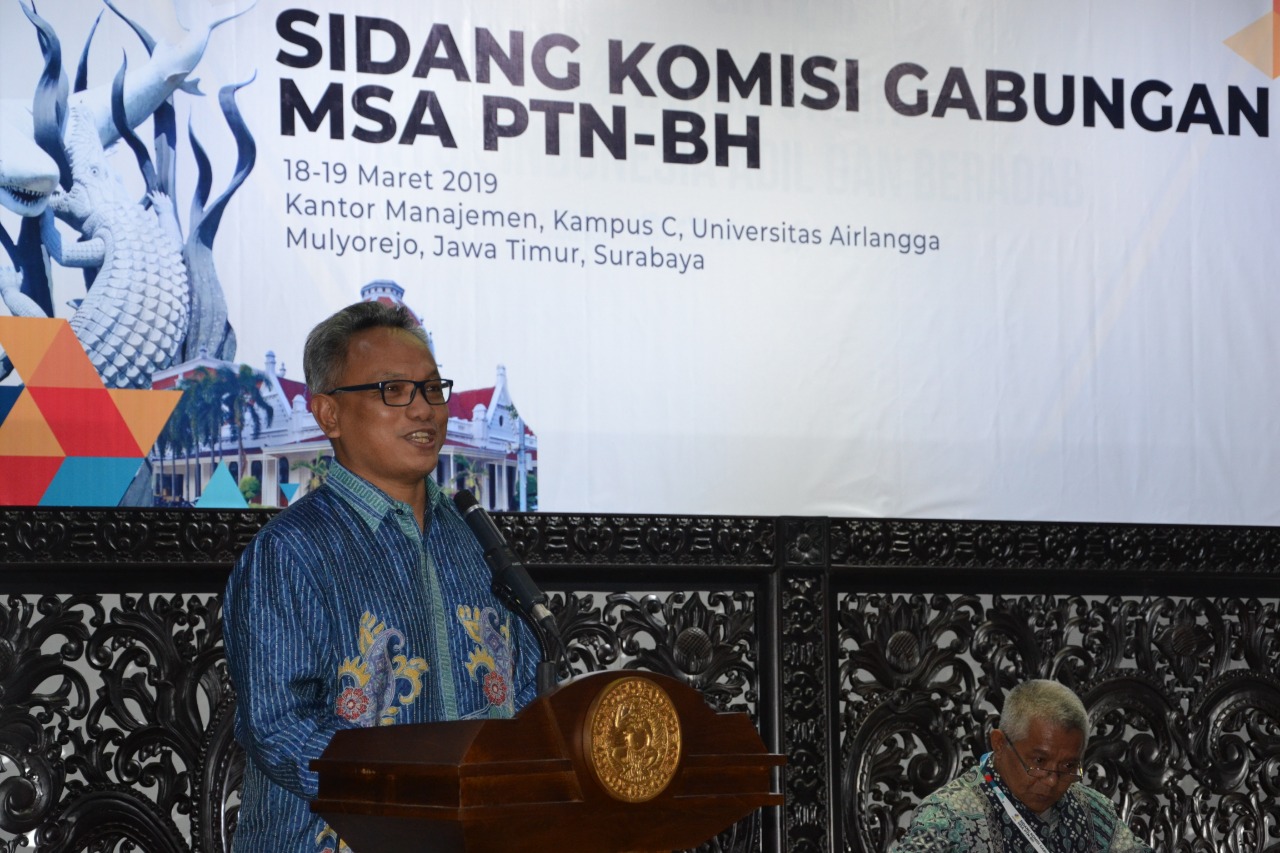UNAIR NEWS – Academic Senate Assembly (MSA) 11 Legal Entity Universities (PTN-BH) held a joint session at Universitas Airlangga (UNAIR). The event was held at Amerta Hall Campus C UNAIR. The meeting was held for two days, March 18-19 2019.
The topic discussed in the session is “Management of Vocational Education in Curriculum Development and Multi-Entry Multi-Exit Implementation”. The event was attended by more than 130 participants and also dozens of vocational school principals in Indonesia. It was opened by Chairman of PTN-BH MSA Prof. Ir. Priyo Suprobo, MS., Ph.D.
“The current PTN-BH MSA Joint Commission Meeting, hopefully can answer the various problems existing in PTN-BH and the problems can be solved,” said Prof. Priyo.
Prof. Priyo revealed that the government would also shift some budgets from infrastructure to the development of vocational education. The transfer of this budget will also help PTN-BH in managing vocational education.
On that occasion, Director General of Learning and Student Affairs of Ministry of Research, Technology and Higher Education Prof. Dr. Ismunandar was present. UNAIR Rector Prof. Dr. Moh. Nasih, S.E., M.T., Ak. and the leaders of UNAIR also attended with other MSA representatives from 11 PTN-BH in Indonesia.
UNAIR Rector Prof. Nasih in his remarks conveyed many things about government policies regarding the development of vocational education.
“Policies provided by the government, some still have obstacles and need improvement,” said Prof. Nasih. “The policy that requires local government vocational schools to join vocational schools in the nearest state universities also demand better schemes and improvements,” he added.
The problems on vocational education was also presented by Prof. Ismunandar. He said the education target in 2024 is to improve the quality of human resources (HR).
“To support vocational education, the curriculum is expected to be based on industry by 50 percent,” said Prof. Ismunandar.
Prof. Ismunandar encourage the PTN-BH to work hard to solve the problem of vocational education. PTN-BH must also provide innovations in improving HR. In addition, vocational education in the future education can be separated from PTNBH.
The separation aims to make vocational education more focused in managing its own education curriculum and institutional. Vocational separation from PTN-BH can be done by a spin off, or it can be interpreted as separation of a company unit. This method (spin off, ed) has a down side from its budgeting aspect. The budget for the separation of vocational education is quite high. (*)
Author: Aditya Novrian
Editor: Binti Q. Masruroh





